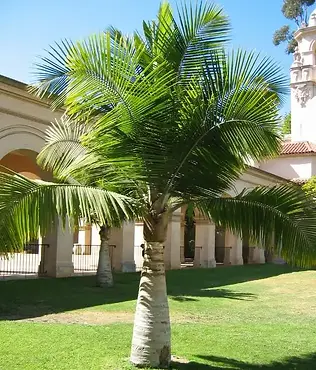top of page


Kentia Palm
Howea forsteriana It is also known as the Thatch palm, Sentry Palm, Howea Forsteriana and Paradise Palm.
It is by far the most popular indoor palm because of its durability and elegant appearance. The Kentia Palm Tree doesn’t require much maintenance and can easily adapt to a wide range of soil conditions.

Phoenix Dactylifera
Commonly known as Date, Edible Date, True Palm or Date Palm.
This palm has a striking blue appearance.
The Phoenix Dactyliferia requires full sun and hardy to -3c but the soil but be kept pretty dry.

Phoenix Roebelenii
Also goes by the names of dwarf date palm, pygmy date palm, miniature date palm.
This palm can survive in sun to part shade and is an ideal conservatory palm.

Areca Palm
Also known as Golden cane palm, Golden feather palm, yellow palm, butterfly palm, Dypsis lutescens or bamboo palm. This palms requires bright indirect light and is best grown indoors.

Travellers Palm
Also called the majestic palm, or majesty palm needs part shade away from direct sunlight and is tender in frosts.

Gaussia Maya Palm
This palm requires full sun to part shade and can only tolerate very mild frosts when very mature.


Fox Tail Palm
The Wodyetia bifurcata palm requires full sun to part shade and can only tolerate mild frosts when very mature.

The Bottle Palm
Hyophorbe lagenicaulis or the palmiste gargoulette needs full sun and it tender in frosts.

Mangrove Palm
Nypa fruticans, commonly known as the nipa palm or simply nipa thrives in muddy locations and in water.

Spindle Palm Tree
Also known as Hyophorbe verschaffeltii, Hyophorbe verschafeltii, Palmiste Marron Palmor the European spindle tree. Requires sull sun to light shade. Tender in frosts.
The Oil Palm
Elaeis guineensis requires full sun and high temperatures, so will not survive frosts,

bottom of page














